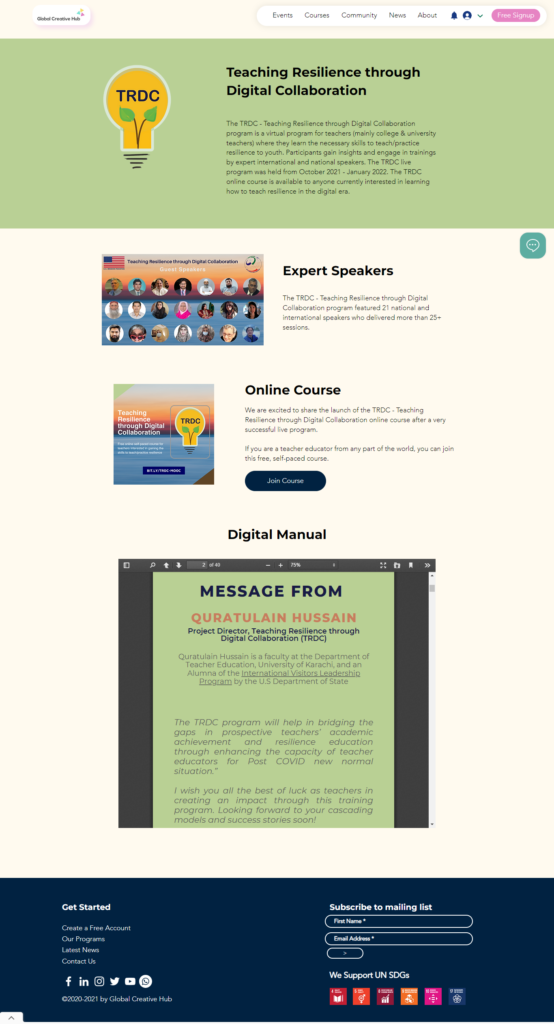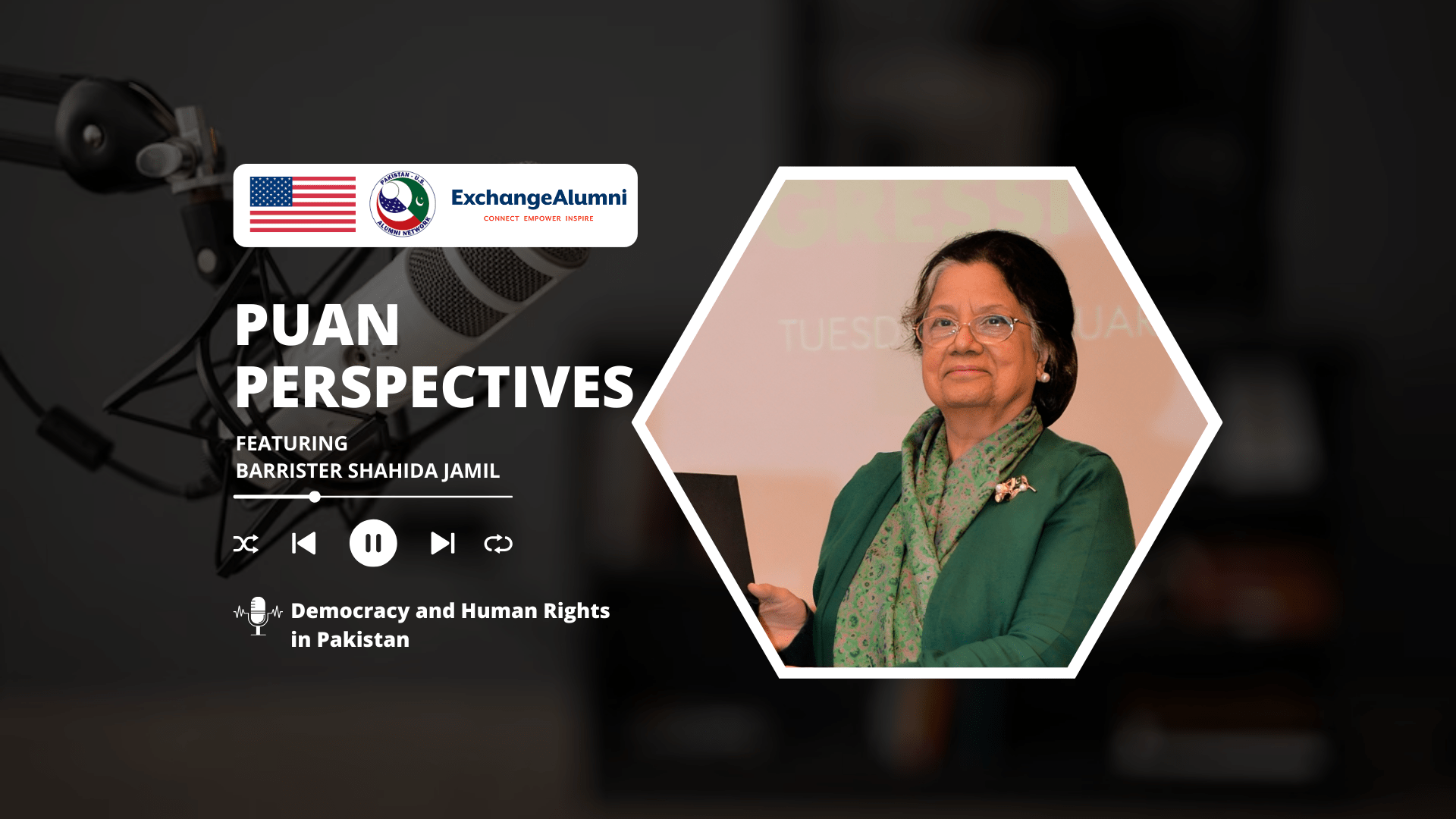By: Shehneela Mazhar
Quratulain Hussain, our IVLP alumna from Karachi, carried out an Alumni Small Grant (ASG) project on Teaching Resilience Through Digital Collaboration. The project aimed to provide teachers with the skills and knowledge to teach resilience to youth.

The project was implemented over a period of 16 weeks and involved a virtual training program for teachers from around the world. The program included 25+ sessions on topics such as resilience in academic, social, and personal growth. The training manual was developed to aid this ToT (Training of Trainers) program which was digitally distributed to program participants with a goal to empower them to organize a TRDC event at their institutions.
With over a decade of experience in working with at-risk youth and teacher training, Quratulain’s passion for creating impact was evident. Her desire to see teachers and youth she impacted making a difference in their communities fueled her drive. As a teacher educator herself, she understood the transformative power of training programs for beneficiaries. She aimed to create an inclusive platform that connected teacher educators globally and fostered learning, experience-sharing, and collaboration.
The core objective of Quratulain’s ASG project was the creation of the TRDC (Teaching Resilience through Digital Collaboration) program. This virtual initiative targeted college and university teachers, equipping them with essential skills to teach and practice resilience with their students. The program featured expert speakers from both international and national backgrounds, offering insights and training sessions. The TRDC program spanned from October 2021 to January 2022.
Quratulain’s project found its rationale in the wake of the COVID-19 pandemic, which highlighted the vital importance of resilience. The rapid shift to virtual education accentuated the need for educators to not only possess resilience but also to impart it to their students. Recognizing the digital revolution in teaching, Quratulain’s TRDC program was a response to this paradigm shift.
The impact of Quratulain’s project was evident in its outcomes. The program witnessed a registration surge, with over 200 applicants and 85 graduates. A digital manual was developed, and participants from 14+ countries enriched the program’s cross-cultural exchange. Through digital platforms, participants engaged in 25+ sessions, gaining insights into fostering resilience in academic, social, and personal growth contexts.
The beneficiaries’ quotes captured the essence of the program’s impact. Dr. Rani Gul from Malakand, Pakistan, emphasized the importance of resilience training to model behavior for students. Dina Rafidiyah from Banjarmasin, Indonesia, lauded the program’s positive influence on teaching and learning processes.
Quratulain’s collaboration with the U.S. Mission and the Pakistan-U.S. Alumni Network (PUAN) was a journey of support and success. The program’s alignment with the PUAN Charter’s goals of inclusivity and empowerment resonated throughout the initiative.
In the face of challenges, Quratulain’s tenacity shone. Despite different time zones posing logistical issues, her team managed outreach effectively. Budget constraints and currency fluctuations were hurdles overcome through creative management.
The TRDC program’s success was a collaborative stride toward promoting resilience in global education. Through digital collaboration, cross-cultural exchanges, and enriched teaching methodologies, Quratulain’s project carved a path toward a resilient and empowered educational landscape. As the program transformed into an online course, Quratulain’s vision of a lasting impact continued to unfold, ensuring that resilience remained a cornerstone of education for years to come.




